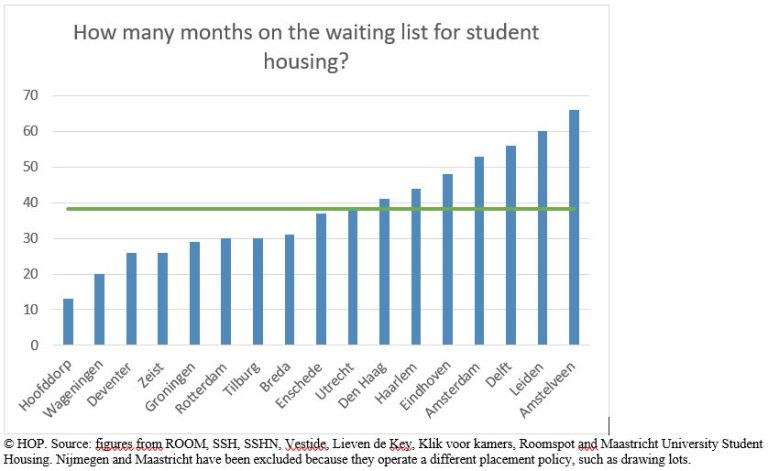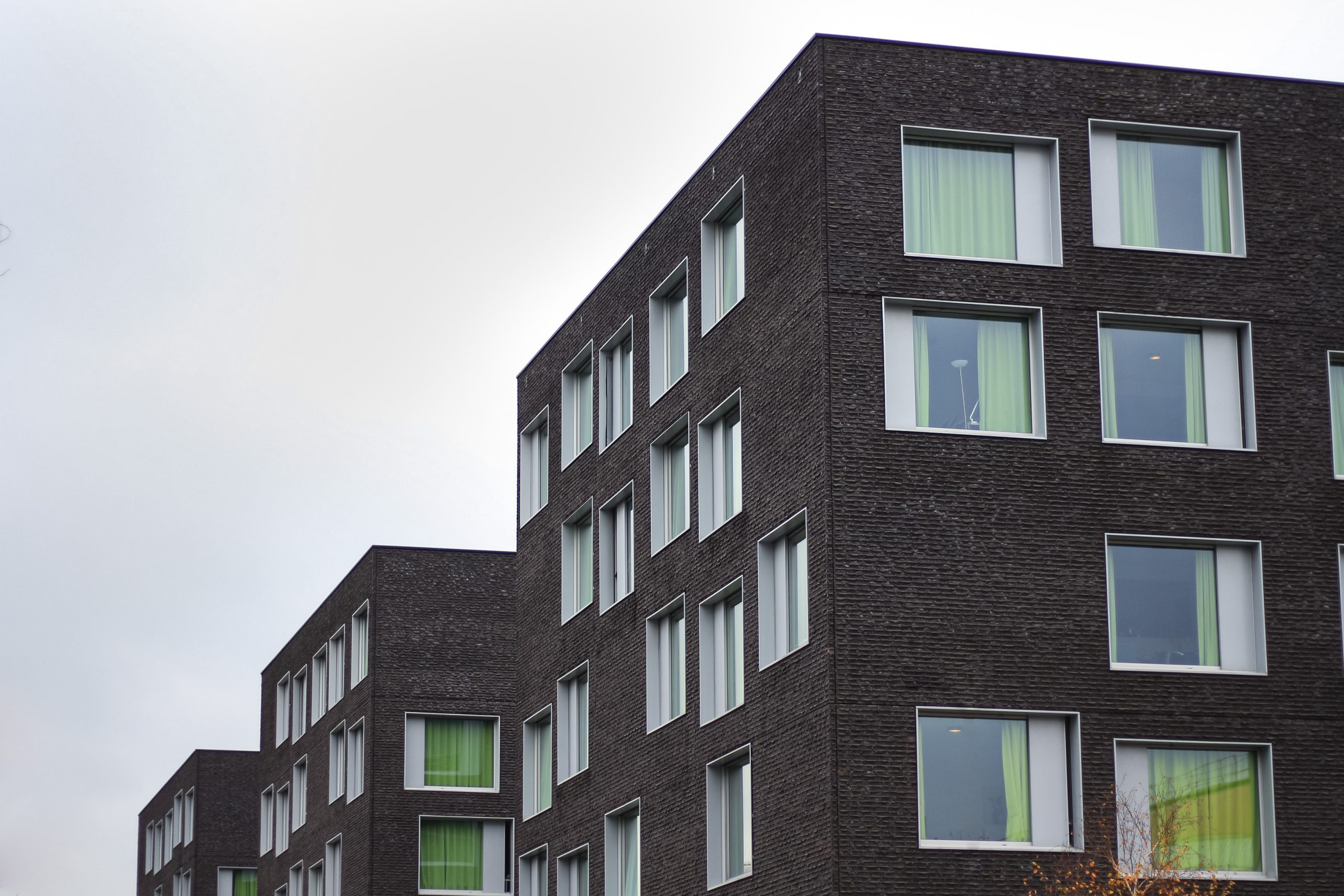Students are on social housing providers’ waiting lists longer and longer: more than three years on average. Delft ranks third among municipalities with long waiting times.
Duwo housing on the Leeghwaterstraat. (Photo: Justyna Botor)
Students are seldom able to get a room. Student housing providers, which were set up specifically to help them get affordable housing, can no longer cope with the demand. In the student cities in the Randstad conurbation some students are waiting longer for accommodation than the duration of their study programme.
Waiting times
HOP has asked providers of social housing such as Duwo and SSH for students how long their waiting times are. So the figures quoted here come from them. What is the time lapse between registering and signing a rental agreement?
The waiting time is increasing fastest in the student cities in the Randstad conurbation. In Utrecht it has increased by six months in the past year. In the Amsterdam region (which includes Amstelveen, Haarlem and Hoofddorp) the waiting time has risen by two or three months a year since 2019. The waiting time in Delft and Leiden has increased by three and two months respectively. In Delft, the average waiting time is currently 56 months. The national average is more than three years and only in Hoofddorp and Wageningen is it less than two years.

The waiting times include students who move house, from a room offered by a student housing provider to their own apartment for instance. The student housing providers cannot say what proportion that is. But SSH also has complexes in the popular location of Utrecht where the only students who move in are those who come to live for the first time in accommodation provided by the cooperative. The waiting time for that has grown from two to three years since 2021.
Students who have to wait for excessive periods are forced to rely on the expensive private sector. Overall, students find housing after an average of five months, according to the annual National Student Housing Monitor.
National platform
Jolan de Bie, director of Kences, the umbrella organisation for student housing providers in the Netherlands, is worried. “The current shortage is really too great and we all have to do something about it.” The government’s National Student Housing Action Plan therefore aims for the construction of 60,000 extra housing units in the next eight years.
De Bie expects that a new joint rental platform of student housing providers will ease the pressure as from 2024. “Currently, prospective students can register for our housing from the age of 16, but only in one city. On our new national platform they don’t have to make that choice: they are on the waiting list in all cities.”
De Bie says that such a platform also offers geographical flexibility. “Students are increasingly mobile and can live in a municipality other than the one in which they are studying. If the housing providers work together more, that will hopefully reduce the pressure on availability in the cities with the longest waiting times, which will then get shorter.”
HOP, Peer van Tetterode
Translation: Taalcentrum-VU
Do you have a question or comment about this article?
s.m.bonger@tudelft.nl


Comments are closed.